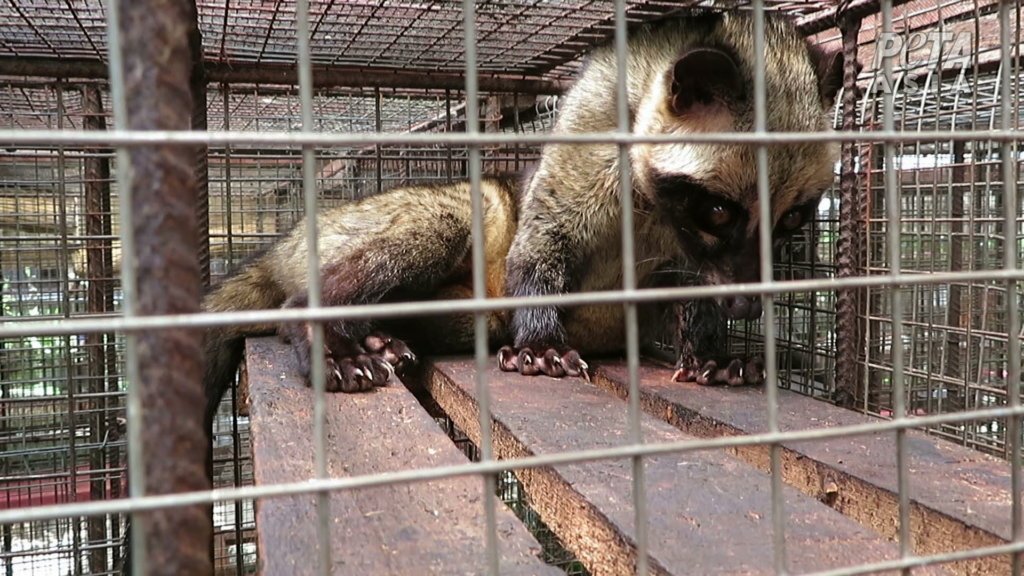Coffee is not only amongst the most beloved global beverages, but also amongst the most diverse. One of the types of coffee that stands out in particular is Kopi Luwak, the world’s most expensive coffee. Also known as civet coffee, it is produced by coffee cherries collected from civet poop. While the final beverage has a pleasant cherry fragrance, it has catalysed the illegal wildlife trade of Asian Common Palm Civet (Paradoxurus hermaphroditus).
When consumed by civets, the endocarps of the cherries are perfused by gastric juices. Amino acids are compressed into shorter peptides. This intense biological process augments the taste of these coffee seeds. Once these undigested coffee seeds are collected from civet excretions, they are roasted and malted to reduce their bitterness.
History
Kopi Luwak finds its roots in 19th Century Central Java. The exorbitant prices of coffee seeds have been a major attraction for producers. A kilogram of wild coffee beans sells for over $1,3000! This has led to a paradigm shift in the production methodology of the coffee beans. Originally, coffee seeds were collected from the excretion of wild civets.
However, the high profits have spurred an illegal captive civet industry. The animals are caught from the wild and kept in isolation in battery cages under horrid conditions. The captive animals are provided a limited diet of coffee cherries. The lack of dietary variety has numerous health implications for the civets. It is no surprise therefore, that captive civets have an unnaturally high mortality rate.
The industry has now spread across Indonesia, especially to popular tourist locations such as Bali. Thousands of oblivious tourists, not only consume this coffee but often participate in paid “Kopi Luwak Tours”.
We Don’t Really Want Another Pandemic!

Unfortunately, the coffee industry not only encourages the illegal wildlife trade but poses massive risks in terms of zoonotic spillover. In fact, there have been records of SARS transmission between civets and humans. Aged civets which no longer are used in farms are often sold to the wet markets. Much like the Tiger Temples, Elephant Rides, Canned Lions and Dancing Bears Industries, the Kopi Luwak industry is potentially funding the next pandemic. These unethical practices severely taint the plethora of advantages brought about by sustainable wildlife tourism!
Civets are not the only animal whose excretions are used to produce coffee. The semi digestion of coffee seeds by various other animals such as Barking Deer and various birds. Undigested coffee seeds spit out by bats are also used to produce Kopi Luwak. However, I would like to remind you that the COVID-19 pandemic is still wreaking havoc in countries the world over, so please do not try this option!!!!
Fortunately, Elephant dung, along with its numerous other uses, also can be utilized to produce sustainable coffee without breaching animal right laws!
In recent times, Kopi Luwak coffee has come under the radar for its unethical practices. An investigation by PETA and BBC found that producers falsely labelled coffee as “wild sourced.” Meanwhile, their awareness campaigns have met with much success. The recent PETA Asia video exposé, has pressured renowned coffee shops, such as Hollywood’s Mr. Kicco Coffee & Wine, to remove the beverage from its menu.
Sustainable Alternatives to Kopi Luwak
Numerous entrepreneurs are working towards producing sustainable alternatives to civet digest coffee seeds. The University of Florida in fact won a patent for producing Kopi Luwak coffee without animals. Similarly, Afineur, a Brooklyn-based food startup, developed fermentation technology to reproduce Kopi Luwak taste with an improved nutritional profile. However, these methods are too labour intensive and have lower quality taste.
Sustainable Luwak is produced in India by Coorg Consolidated Commonodiets. The start up, which has humble origins, supposedly sources seeds from wild civets which often venture into coffee plantations. From producing 60kgs of seeds in 2015, the start up now produces over 200kg annually. Hopefully, the firm can maintain their ethical and sustainable methods. If so, it will be a wonderful way to mitigate human wildlife conflict. This is particularly the case for plantation owners who would otherwise experience substantial loss due to consumption of coffee seeds by wild animals. This could be one of the numerous innovative methods of coexistence used in India!
We hope that the dark industry of Kopi Luwak goes through a major overhaul. Not only do the civets deserve a better life, but we humans cannot afford another pandemic!
Help us Help Them! Think Wildlife Foundation is a non profit organization with various conservation initiatives. Our most prominent campaign is our Caring for Pari intiative. Pari is a rehabilitated elephant at the Wildlife SoS Hospital. 25% of the profits from our store are donated to the elephant hospital for Pari. Other than buying our wonderful merchandise, you could donate directly to our Caring For Pari fundraiser.
